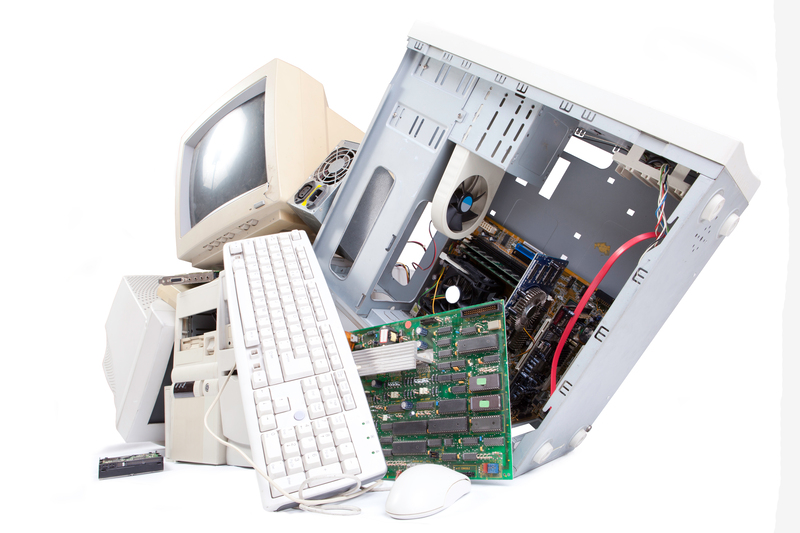Sustainable Office Culture: Ingenious Ideas for Waste Reduction
In today's eco-conscious era, businesses are embracing more than just profit-driven goals; they're dedicating resources to environmental sustainability and waste reduction. Cultivating a sustainable office culture is crucial not only for the planet but also for workforce wellbeing and cost savings. This comprehensive guide explores ingenious ideas for creating eco-friendly, low-waste office spaces, highlighting practical steps and impactful strategies to revolutionize your workplace.
Why Sustainable Office Culture Matters
A sustainable work environment doesn't just make a statement--it makes a difference. Implementing robust waste reduction initiatives can significantly decrease your organization's environmental impact. Moreover, fostering sustainability at work can improve employee morale, enhance your brand reputation, and even lower operational costs. Let's uncover the compelling reasons behind this critical shift:
- Environmental Responsibility: Offices generate vast amounts of paper, plastic, and electronic waste. Reducing this footprint helps preserve natural resources and mitigate climate change.
- Economic Benefits: From energy savings to reduced waste disposal costs, sustainability often translates to financial gain.
- Talent Attraction and Retention: Employees today prefer companies that align with their values--sustainability tops their list.
- Brand Differentiation: A visible commitment to sustainable business practices helps your brand stand out in competitive markets.

Building a Sustainable Office Culture: The Foundations
Establishing a culture of sustainability is not a one-off project; it's a continuous journey. From leadership buy-in to employee engagement, here's where you should start:
1. Leadership Commitment
Sustainable office culture thrives when leaders set a powerful example. When management invests in zero-waste initiatives and eco-friendly policies, these values trickle down throughout the organization.
2. Employee Involvement
Encourage employees at all levels to get involved. *Sustainability champions*, green teams, or *eco committees* can help brainstorm new waste reduction strategies and drive participation.
3. Policy and Communication
Clear, accessible green policies--like digital document management or mandatory recycling--ensure everyone knows what's expected. Regular updates keep staff informed and motivated.
Ingenious Ideas for Office Waste Reduction
Let's dive into creative and effective office waste reduction ideas that boost sustainability and can be tailored for any work environment.
1. Go Paperless: Minimize Paper Waste
Despite digital transformation, offices still use staggering amounts of paper. Switching from paper to digital alternatives is a top strategy for a zero-waste office.
- Digital Signatures: Implement secure electronic signing for contracts and forms.
- Cloud Collaboration: Use cloud storage and editing tools (Google Workspace, Microsoft 365) to eliminate unnecessary printing.
- Online Invoicing: Make all billing and receipts paperless.
- Double-Sided Printing: Set printers to default duplex printing when physical documents are necessary.
Pro tip: Incentivize teams with "Paperless Challenges" and publicize paper savings monthly.
2. Rethink Office Supplies
Office supplies are a hidden source of waste. From disposable pens to single-use plastics, reducing consumption begins with rethinking supplies.
- Reusable Stationery: Switch to refillable pens, mechanical pencils, and non-toxic highlighters.
- Eco-Friendly Products: Source certified green office supplies made from recycled materials.
- Bulk Ordering: Minimize packaging waste by ordering in bulk and choosing vendors with sustainable packaging.
- Sharing Systems: Create a centralized supply station to prevent over-purchasing of items.
3. Implement Smart Recycling and Composting
Traditional recycling is just the beginning. Offices can innovate waste management by:
- Clearly Labeled Bins: Use color-coded bins for paper, plastics, e-waste, and compost. Place them in prominent locations.
- Staff Education: Regularly train staff on recycling procedures and update them about local regulations.
- Composting Programs: Collect food scraps and organic waste from kitchen areas and establish a composting program--either in-office or via a commercial service.
- E-waste Drives: Facilitate safe e-waste drop-offs or donations to certified recyclers for tech equipment.
4. Reduce Single-Use Plastics
- Reusable Dishware: Stock kitchens with ceramic mugs, plates, and cutlery to replace disposables.
- Filtered Water Stations: Provide water refill stations and encourage staff to use refillable bottles.
- Plastic-Free Events: Ban single-use plastics at all meetings and catered events.
5. Green Office Events and Catering
- Zero Waste Events: Work with vendors using minimal packaging and sustainable materials.
- Local Procurement: Choose locally sourced food to minimize packaging and transportation waste.
- Leftover Management: Set up food donation or composting for leftovers.
6. Optimize Energy Consumption
Reducing energy waste is key to a more sustainable office:
- LED Lighting: Replace all bulbs with energy-efficient LEDs.
- Motion Sensors: Automate lighting, heating, and cooling to reduce unnecessary use.
- Power Management: Set all electronics to sleep mode after inactivity and encourage unplugging devices after hours.
7. Foster a Sustainable Commute Culture
Waste isn't just generated in the office--consider commuting too:
- Carpool Incentives: Offer rewards or preferred parking for carpoolers.
- Bicycle Facilities: Provide secure bike storage and shower facilities to encourage cycling.
- Remote Work: Allow flexible work-from-home options to cut down on daily travel emissions.
Creating Lasting Change: Employee Engagement Strategies
A sustainable office culture flourishes with *active participation*. Here's how to keep sustainability at the heart of your organization:
- Gamification: Launch green competitions (e.g., "Waste Watcher of the Month").
- Workshops and Talks: Invite sustainability experts or host eco-challenges.
- Recognition and Rewards: Celebrate departments or individuals championing waste reduction.
- Open Suggestions: Set up an idea box for employees to propose new green initiatives.
Tech Tools for Smart Waste Reduction
Innovative technologies streamline and amplify sustainable office culture efforts:
- Sustainability Apps: Track resource use, recycling rates, and progress toward sustainability goals.
- Smart Printers: Use machines with print quotas and automatic order features for toner and supplies.
- Facility Management Systems: Monitor energy, water, and waste for data-driven improvement.
Measuring Success: Tracking Your Sustainability Impact
To ensure ongoing improvement, it's crucial to measure and report the impact of your waste reduction efforts:
- Set Clear KPIs: Track metrics like paper usage, waste diversion rate, energy consumption, and plastic use reduction.
- Regular Audits: Carry out waste audits and invite employee feedback.
- Transparency: Share milestones and progress with all stakeholders to maintain momentum.
Case Studies: Companies Excelling in Office Waste Reduction
Adobe
Through rigorous waste audits, Adobe achieved an 85% landfill diversion rate in its San Jose headquarters by investing in composting, digital workflows, and employee engagement.
Patagonia
Patagonia champions a sustainable work culture by promoting reusable dishware, offering repair programs for office equipment, and encouraging environmentally conscious commuting.
Google's green campuses deploy advanced waste tracking systems, composting, and robust recycling programs, aiming for zero waste to landfill at its global offices.

Frequently Asked Questions on Sustainable Office Culture
How can small businesses afford sustainable office solutions?
Many solutions, such as going paperless, recycling, and minimizing single-use products, are low-cost or can even result in savings over time. Start with simple changes and scale up as resources allow.
What's the most effective way to get employees on board?
Lead by example, communicate clearly, and make sustainability fun! Gamification and public recognition go a long way in building enthusiasm.
How do we ensure long-term sustainability?
Integrate waste reduction into everyday operations and give employees ownership over initiatives. Measure results and continuously seek feedback for improvement.
Conclusion: Your Roadmap to a Greener, Waste-Free Office
Building a sustainable office culture with ingenious waste reduction ideas requires both commitment and creativity--but the rewards are transformative. Reducing office waste isn't just about being eco-friendly; it means fostering innovation, saving money, and building a more resilient company. By applying these best practices, your office can lead the way toward a cleaner, greener, and more successful future.
Are you ready to revolutionize your office sustainability strategy? Start with these tips and encourage a culture where every small action counts toward a zero waste office environment.